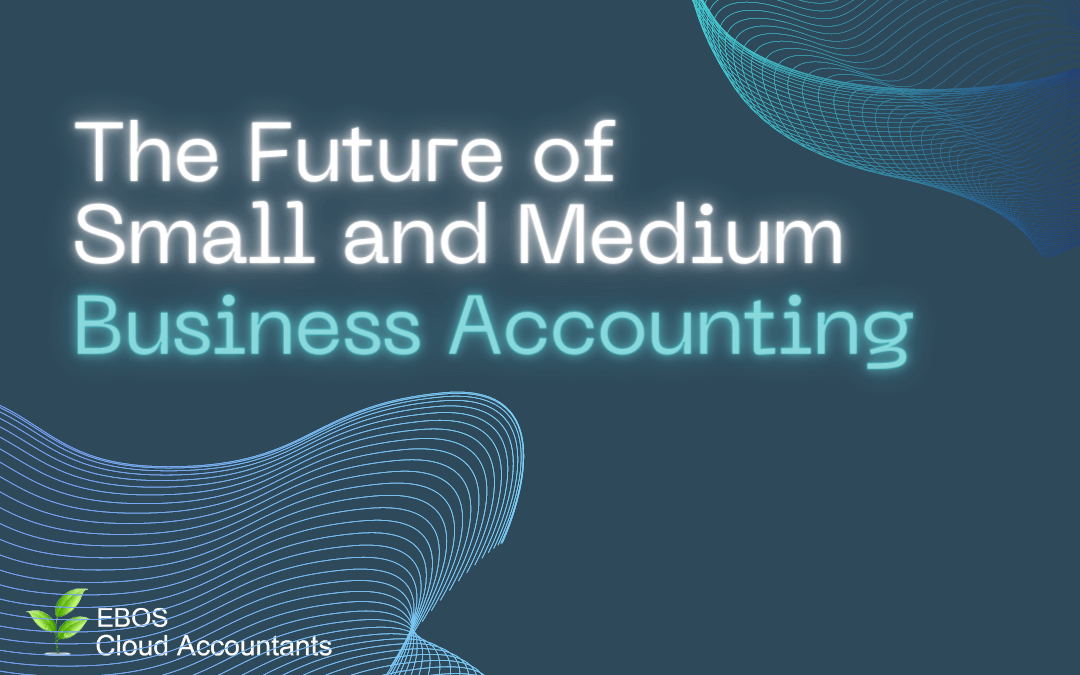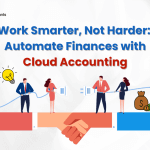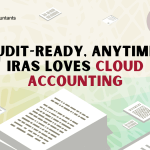The future of accounting is here and it’s all about technology. Accounting firms are finding new ways to use software, artificial intelligence, and cloud computing to increase efficiency and better serve their clients. With the increased availability of data, computing power, and AI-driven automation, accountants can spend more time working on high-value tasks like strategic planning or interacting with clients rather than mundane day-to-day tasks such as data entry.
The question then becomes: how will these changes affect the way we do our jobs? And what does this mean for small business owners?
The accounting profession is changing
Gone are the days where accounting means tedious bookkeeping. A large number of companies, including EBOS SG, offer digital tax and accounting services that allow clients to integrate bookkeeping and accounting into day-to-day routines.
While financial statements and balance sheets are typically generated only once a year, it is now possible with available accounting services and software to produce them at will, thus allowing small business owners to observe and understand their business’ financial standing from day to day instead of from quarter to quarter.
Accounting firms, including us at EBOS SG, are beginning to adapt to the future and embrace this ability. Our accountants provide additional services on top of traditional bookkeeping and accounting via software: to provide insight into your bank statements and your financial status.
So what does that mean for my small business?
Firstly, it no longer makes sense to hire full-time and traditional accountants! Once cloud-based digital services are set up, it makes more sense to hire external vendors or consultants to assist you with generating your financial statements if needed, or simply learn to do it yourself online and engage accountants to help you interpret your statements and make recommendations to your business based on what the statements say.
This saves businesses a lot of money in the long run; instead of paying an accountant thousands of dollars every month, you spend less than 1-2 months of that salary on temporarily engaging an external vendor to advise you on what to do, and simple carry out the bookkeeping as instructed by filling out forms regularly on an app or online form.
What are the pros and cons of cloud-based accounting?
Cloud-based accounting is straightforward, and simple to learn and understand even for small business owners without any prior accounting or finance background. Online accounting services include guidelines on what to do for bookkeeping and accounting, and many local services even include specialised tax and accounting services for your yearly income tax filings.
Often, accounting software can connect directly to your bank accounts (e.g. DBS, OCBC) and import (with a minor time lag) the expenditure recorded on the bank accounts. Clients can then go in and add additional details if they wish (this is called ‘reconciling accounts’) to make sure that they know what various items are referring to. Accounting software can frequently be customised as well, so companies who prefer more details can have this included while other small or medium businesses can use simpler options.
Furthermore, cloud-based accounting allows the work of bookkeeping to be distributed amongst the rest of the team. Traditional bookkeeping may take the form of physical records, with invoices, receipts, and the like all being generated and maintained by one person. However, most software allows this to be distributed amongst various team members. For instance, some software allows even salespeople or project managers to generate invoices and receipts for projects to directly send to clients instead of waiting for the company’s accountant to do so. This drastically reduces waiting time for paperwork, and can also allow businesses to secure clients more easily without spending additional cash on the purchase or marketing funnels!
The downside of accounting software, however, is that financial statements and balance sheets are still generated in the traditional format, which many business owners may not be able to read if they do not have much experience in accounting or finance. As such, while documentation can be generated for AGM or government filing purposes, owners may not be able to utilise this information to guide their business development decisions very much. This can be solved by simply engaging an additional consultant to interpret your statements and advise you.
In summary
Cloud-based accounting can offer many benefits to small businesses, but it doesn’t come without its own set of limitations. The best way for you to determine if this is the right choice for your company is by comparing the pros and cons. If you’re interested in learning more about cloud-based accounting or would like help determining which option will work best for your business, contact our team today. We’d be happy to answer any questions that may arise as well as provide a free consultation with one of our experts who specializes in these types of services!







